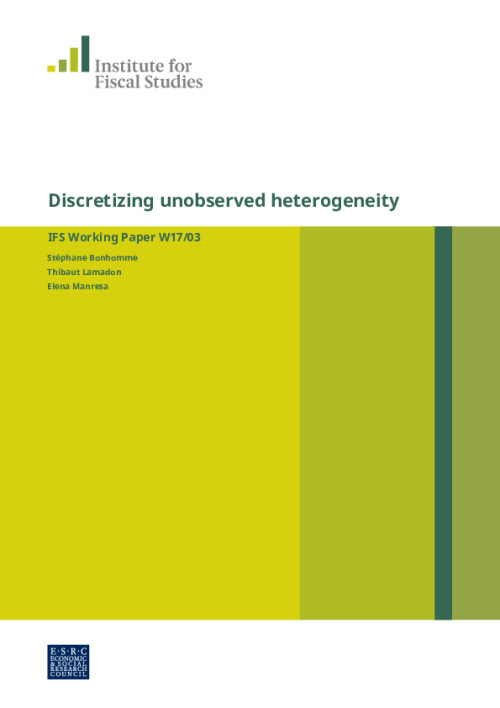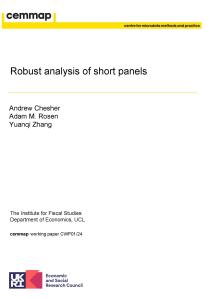We study panel data estimators based on a discretization of unobserved heterogeneity when individual heterogeneity is not necessarily discrete in the population. We focus on two-step grouped- fixedeffects estimators, where individuals are classi ed into groups in a rst step using kmeans clustering, and the model is estimated in a second step allowing for group-speci c heterogeneity. We analyze the asymptotic properties of these discrete estimators as the number of groups grows with the sample size, and we show that bias reduction techniques can improve their performance. In addition to reducing the number of parameters, grouped fixed-effects methods provide e ective regularization. When allowing for the presence of time-varying unobserved heterogeneity, we show they enjoy fast rates of convergence depending of the underlying dimension of heterogeneity. Finally, we document the nite sample properties of two-step grouped fi xed-effects estimators in two applications: a structural dynamic discrete choice model of migration, and a model of wages with worker and rm heterogeneity.










